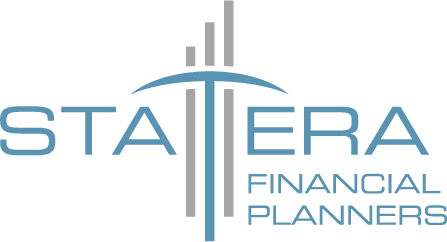Breaking the Money Taboo: Why Conversations About Finances Matter

Introduction
Money has always been a complex topic for many people in Canada. From childhood, we often learn that discussing finances is impolite or uncomfortable. This cultural stigma has created a situation where many avoid having crucial financial conversations, even with close family members and friends. However, breaking this taboo is essential for better financial health and outcomes.
This year's Financial Literacy Month theme, “Money on your Mind. Talk about it!” stresses the importance of discussing finances. By highlighting the benefits of talking about money, especially for women, we can encourage more Canadians to break the silence. Now is the perfect time to start talking about money and make it a regular part of our conversations.
The Cultural Stigma Around Money Conversations in Canada
In Canada, talking about money is often seen as taboo. Many people believe that discussing finances is rude or too personal. This cultural stigma starts at a young age and continues into adulthood. As a result, people might avoid critical financial conversations with friends, family, and even financial advisors.
This avoidance can lead to problems. People who don't talk about money might not learn good financial habits. They may also miss out on advice that could help them save money or avoid debt. The stigma around money conversations keeps people from asking questions and sharing vital information.
By understanding this cultural stigma, we can start to break it down. It's important to realize that discussing finances is a healthy and necessary part of life. Open conversations about money can lead to better financial decisions and improved economic health. We need to normalize these discussions to help everyone feel more comfortable discussing their finances. Financial advisors can also play a role in guiding these conversations, offering expert advice that leads to sound financial practices.
The Benefits of Normalizing Financial Discussions
There are many benefits to having open conversations about money. People can feel more confident about their finances when they talk openly about their financial decisions. This confidence comes from gaining knowledge and understanding through discussions and advice from others.
One key benefit is better financial outcomes. Research shows that people who talk about money are more likely to save, invest wisely, and avoid debt. Sharing experiences and tips can lead to better financial habits and decisions. This is particularly true for women, who often face unique financial challenges and can significantly benefit from open financial discussions.
Another benefit is increased financial literacy. When people talk about money, they learn from each other. They pick up new ideas and strategies for managing their finances. This shared knowledge helps everyone make more informed decisions about their money. Normalizing these conversations can create a community where financial literacy is valued and encouraged. Financial advisors can be instrumental in this educational process, providing clarity and confidence through their expertise.
The Impact on Women: Enhanced Financial Confidence and Outcomes
Open financial discussions have a profound impact on women. Women often face unique financial challenges, such as the gender pay gap and longer life expectancies, which can affect their economic security. Talking openly about money helps women gain the confidence they need to tackle these challenges.
Research shows that women who engage in financial conversations are more likely to feel confident about their finances. This confidence leads to better financial decisions, such as saving more for retirement, investing wisely, and reducing debt. Better financial practices contribute to overall financial stability and independence.
Moreover, open conversations about money create a support system where women can share experiences and advice. This collective knowledge empowers women to take control of their financial futures. By encouraging women to talk about money, we can help close the financial literacy gap and promote equality in economic outcomes.
Expert Opinions and This Year’s Financial Literacy Month Theme
Experts agree that normalizing money conversations is vital for improving financial literacy and outcomes. Financial advisors, educators, and researchers stress the importance of discussing finances openly. They believe these discussions can demystify financial concepts and make managing money less intimidating.
This year's Financial Literacy Month theme, “Money on your Mind. Talk about it!” highlights the need to break the silence around money. Experts suggest that discussing finances, particularly with the guidance of financial advisors, can reduce stress and anxiety related to money management. It encourages proactive financial planning and helps people avoid financial pitfalls.
Canadians can foster a culture of open financial dialogue by following expert advice and embracing this year's theme. This shift can lead to healthier financial habits, better decision-making, and enhanced financial well-being.
Conclusion
Breaking the taboo around money conversations in Canada is crucial for improving financial health and literacy. Understanding the cultural stigma and the benefits of open financial discussions can normalize these critical conversations. Women, in particular, stand to gain significantly from increased confidence and better economic outcomes through these discussions.
Experts and this year's Financial Literacy Month theme emphasize the importance of talking about money. These conversations are vital in reducing financial stress, fostering better financial habits, and making informed decisions. We can create a more financially literate and secure community by embracing open financial dialogue. Working with financial advisors can also empower individuals to take control of their financial futures with confidence and clarity.
Take control of your financial future today with our financial advisors in Edmonton. Contact Statera Financial Planners in Edmonton to start the conversation and make informed financial decisions. Let's break the money taboo together and build a brighter economic future.

As financial planners, we do not provide specific tax and legal advice. You should always consult your accountant and/or lawyer where necessary. Because of the many ways a strategy may be impacted when segmented, we prefer to communicate collectively with your external professionals to ensure that all recommendations and action plans are in the overall best interest of you, with your professionals working with common goals in mind.
You are never obligated to act on our recommendations of products, services, or advice.
